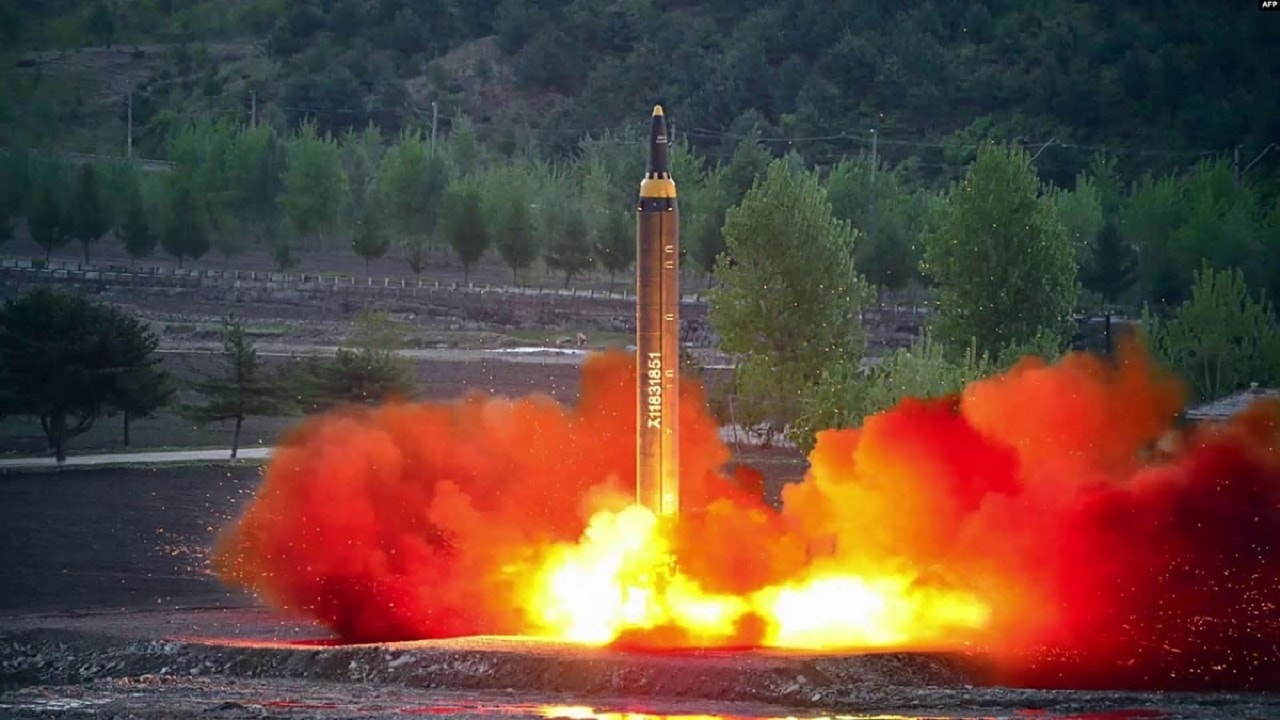The West has a peculiar belief that authoritarian states care deeply about their image in the international community. We want to believe that they care so much that we can name and shame them into compliance, even against their core interests. This is not true, but the notion is attractive to policymakers because it gives them some semblance of options that do not rely on harder power.
Recently, the Wall Street Journal ran a column by Zachary Keck titled “Shame Beijing into Nuclear Talks.” Keck argued that public pressure can motivate China into arms control by “relentlessly” pressing Beijing in public speeches and international forums.
Writing in the Washington Post, Frank Aum, my predecessor as special advisor for North Korea in the Office of the Secretary of Defense, argued that Pyongyang violating the 1994 Agreed Framework by enriching uranium was no reason for the United States to “shatter” the agreement.
In 2022, the United States unilaterally decreed that it would not be involved in direct-ascent anti-satellite missile testing. It would abstain in order to create new international norms, and Washington called on other nations to make similar declarations.
Even though Russia had been in material noncompliance with the Intermediate Nuclear Forces Treaty for years — not to mention the fact that the treaty did not bind China at all — arms control advocates argued the United States must remain in compliance so that the international community would clearly see who the good guys were, and that we still held the moral high ground. Instead of leaving, they naturally said we should shame Moscow into compliance.
On its face, this approach may seem unserious, even silly. However, this noxious combination of America’s fondness for agreements that bind it and its allies, even unilaterally, with the view that international condemnation is sufficient to control adversaries’ behavior, has real consequences. It creates perverse incentives for U.S. adversaries.
During my own time as a policymaker in the Office of the Secretary of Defense, I was amused and bemused by arguments built on the belief that creating new arms control agreements with states that absolutely would not follow them — North Korea — or staying in arms control agreements clearly breached by the other side — Russia — was vital to America’s interest. The evidence does not bear this out.
You may remember that the Chinese mainland government in 2020 initiated a full-scale crackdown on dissent, free assembly, and free speech in Hong Kong. Beijing subjected Hong Kong to a National Security Law that obliterated its guaranteed autonomous status, annihilated its democratic institutions and traditions, and brought civil society under the control of its ever-present national security state.
The Chinese Communist Party did so not by violating an executive agreement or a memorandum of understanding, but by brazenly breaking the terms of its 1984 treaty with the United Kingdom — a treaty that guaranteed Hong Kong’s status for 50 years. That treaty could not have been more steeped in the trappings of international legitimacy, given that both of its parties, China and the United Kingdom, are permanent members on the United Nations Security Council.
Why then would we believe Beijing can be cowed by finger-wagging into allowing access to its strategic nuclear, cyber, and space capabilities? What in China’s history of aggressive efforts to claim the entire South China Sea leads anyone to think that way?
A history of proposed nuclear deals with Iran and North Korea shows that these were predicated in part on the idea that the international community would be watching, always ready to reapply sanctions. The Taliban holding to their “promises” after their brutal takeover of Afghanistan would be enforced by international condemnation if they rolled back rights for women and girls, under the absurd proposition that the Taliban cared deeply about trade deals and diplomatic normalization.
If you were China, Iran, North Korea, or Russia, would it not be in your best interest to make agreements with the United States that you had no intention of following? Such agreements would probably entail upfront, one-sided concessions by the United States, as Aum called for in his article, or would curtail U.S. options and limit its capabilities. Even better for these actors, you would know that even if you brazenly violated the agreement, you could count on officials in the U.S. arguing that Washington must remain unilaterally bound.
In 2021, I addressed in these pages how this view damaged our security and spawned the zombie “Golden Concession” fallacy of adversarial-state engagement. Moreover, as discussed in several of my columns, the longer a negotiation drags on, the more likely it is that reaching any agreement becomes the goal — not reaching a good one.
Often there are few, if any, effective options in international affairs. After one has exhausted the unthinkable and the unacceptable, the policymaker is often left with so-called messaging and with sanctions. There is a reason the latter two are the go-to kit of any modern U.S. administration. As a consequence, and out of resignation at the lack of truly effective options, policymakers will elevate these banal tools and overestimate their utility. Inevitably, some official will proclaim, logic-free, that the only alternative is an arms race or war.
But the U.S. must remain grounded. An adversary’s willingness to enter into an arms control or inspections regime is not prima facie a sign of good intent. Signing on the dotted line is not indicative of any willingness to follow through. The opprobrium of the international community is not a credible restraint on behavior.
The moral high ground, as the saying goes, is a great place to sight your artillery.
Anthony W. Holmes was special advisor for North Korea in the U.S. Office of the Secretary of Defense from 2017–2021. He is a senior non-resident fellow at Project 2049. He lives in Florida. The views are his own. Holmes is a 19FortyFive Contributing Editor.

